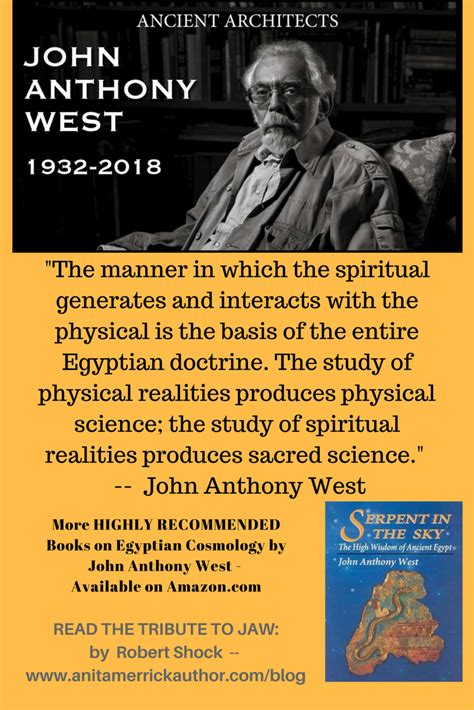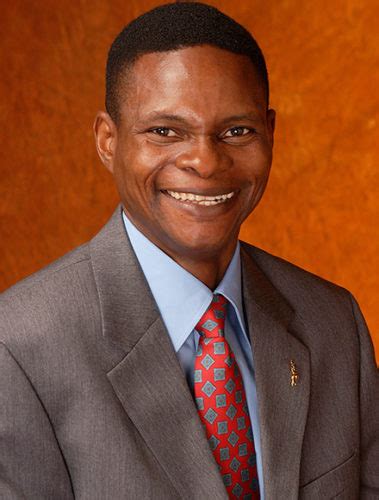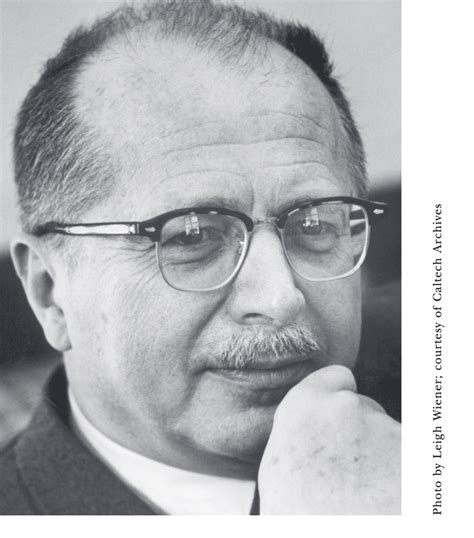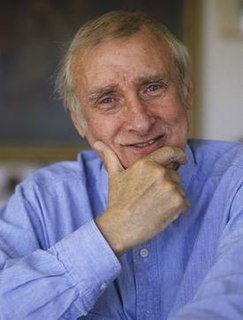A Quote by John Grant
It was very depressing to realize that, when looking around for regimes that have systematically corrupted science within the past century or so, three stood out quite distinctly, head and shoulders above the rest of the herd: Hitler’s Germany, Stalin’s Russia, and Bush’s America. At times when working on the three relevant chapters, I had to remind myself which chapter was the one in front of me: the parallels between the three regimes, in terms of their vigorous attempts to trample honest science underfoot, are as horrifically close as that.
Quote Topics
Above
America
Around
Attempts
Between
Bush
Century
Chapter
Chapters
Close
Corrupted
Depressing
Front
Germany
Had
Head
Herd
Honest
In The Past
Looking
Me
Myself
Out
Parallels
Past
Quite
Realize
Regimes
Relevant
Remind
Rest
Russia
Science
Shoulders
Stalin
Stood
Terms
Three
Times
Trample
Very
Very Depressing
Vigorous
Which
Within
Working
Related Quotes
The impossibility of separating the nomenclature of a science from the science itself, is owing to this, that every branch of physical science must consist of three things; the series of facts which are the objects of the science, the ideas which represent these facts, and the words by which these ideas are expressed. Like three impressions of the same seal, the word ought to produce the idea, and the idea to be a picture of the fact.
It has been said that the three great develpments in twentieth century science are relativity, quantum mechanics, and chaos. That strikes me the same as saying that the three great developments in twentith century engineering are the airplane, the computer, and the pop-top aluminum can. Chaos and fractals are not even twentieth century ideas: chaos was first observed by Poincare and fractals were familiar to Cantor a century ago, although neither man had the computer at his disposal to show the rest of the world the beauty he was seeing.
In my view, The Temple of Man is the most important work of scholarship of this century. R. A. Schwaller de Lubicz finally proves the existence of the legendary 'sacred science' of the Ancients and systematically demonstrates its modus operandi. It was this great science-based upon an intimate and exact knowledge of cosmic principles-that fused art, religion, science, and philosophy into one coherent whole and sustained Ancient Egypt for three thousand years.
Around 17 to 20 years, I became, myself, a poacher. And I wanted to do it, because - I believed - to continue my studies. I wanted to go to university, but my father was poor, my uncle even. So, I did it. And for three to four years, I went to university. For three times, I applied to biomedical science, to be a doctor. I didn't succeed.
At the age of three I began to look around my grandfather's library. My first knowledge of astronomy came from reading and looking at pictures at that time. By the time I was six I remember him buying books for me. ... I think I was eight, he bought me a three-inch telescope on a brass mounting. ... So, as far back as I can remember, I had an early interest in science in general, astronomy in particular.
In my dreams is a country where the State is the Church and the Church the people: three in one and one in three. It is a commonwealth in which work is play and play is life: three in one and one in three. It is a temple in which the priest is the worshiper and the worshiper the worshipped: three in one and one in three. It is a godhead in which all life is human and all humanity divine: three in one and one in three.
I like complex characters. I've been very, very lucky to portray, in these past three years, characters that are strong and fragile at the same time. It's those characters that I'm looking for. In the last year and half I played three different religions, and that allowed me to educate myself so much.
I think religion and science operate in different regimes. Religion is a belief system that tries to give meaning and comprehension to peoples' lives. Science is more about the mechanics of the universe around us and the way in which it works. And I don't think those things have to be mutually exclusive.
Remind me: who was the greater mass murderer, Stalin or Hitler? Well, Stalin is thought to have been responsible for about 50 million deaths, and Hitler for a mere 25 million. What Hitler did in his concentration camps was equalled if not exceeded in foulness by the Soviet gulags, forced starvation and pogroms. What makes the achievements of communist Russia so special and different, that you can simper around in a CCCP T-shirt, while anyone demented enough to wear anything commemorating the Third Reich would be speedily banged away under the 1986 Public Order Act?
"True science has no belief," says Dr. Fenwick, in Bulwer-Lytton's 'Strange Story;' "true science knows but three states of mind: denial, conviction, and the vast interval between the two, which is not belief, but the suspension of judgment." Such, perhaps, was true science in Dr. Fenwick's days. But the true science of our modern times proceeds otherwise; it either denies point-blank, without any preliminary investigation, or sits in the interim, between denial and conviction, and, dictionary in hand, invents new Graeco-Latin appellations for non-existing kinds of hysteria!




































